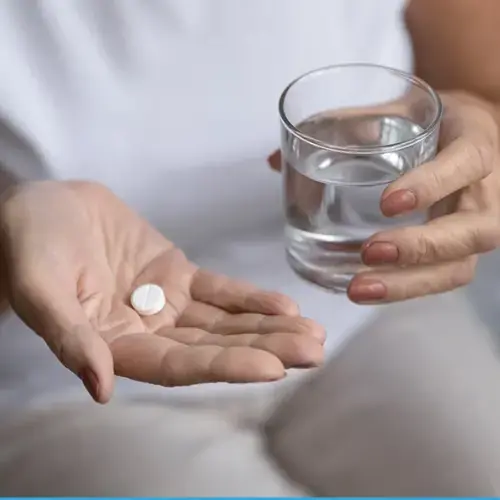What to do if meds cause acid indigestion and heartburn
Symptoms & Triggers
In general, acid indigestion and heartburn are often associated with too many onion rings, that extra slice of double-spicy anchovy pizza, or a plate of cheesy jalapeño nachos just before bed.
But the medications you take — prescription and over-the-counter — may also cause gastric distress. That’s because of how digestion works, and the impact meds can have on your system.
But the medications you take — prescription and over-the-counter — may also cause gastric distress. That’s because of how digestion works, and the impact meds can have on your system.


Here’s how heartburn happens
Normally when food or beverages enter your stomach, a ring-shaped muscle at the lower end of your esophagus (your throat) — the lower esophageal sphincter (LES) — forms a tight seal between your stomach and esophagus. If it doesn’t close up properly, food or stomach acids can come back into the esophagus. All that acid irritates the esophagus and causes acid indigestion and heartburn.
Some medications can affect your system the same way
A number of prescription and over-the-counter meds can contribute to increased acid production in your stomach or relaxing the lower esophageal sphincter.
Here are some examples of the meds that can cause heartburn:
- Anticholinergics (for seasickness)
- Aspirin
- Beta blockers (for high blood pressure or heart disease)
- Bisphosphonates (for osteoporosis)
- Calcium channel blockers (for high blood pressure)
- Dopamine-like drugs (for parkinson’s disease)
- Ibuprofen
- Naproxen
- Narcotic pain relievers
- Progestin (for abnormal menstrual bleeding or birth control)
- Sedatives (for anxiety or insomnia)
- Theophylline (for asthma or other lung diseases)
- Tricyclic antidepressants


Here’s how to relieve your heartburn symptoms
If you get heartburn after taking a medication, don’t stop taking it. Pay attention to how and when you take the drug, check the dosage instructions, and make sure you’re taking it correctly. Ask your doctor or pharmacist to review all your meds. A good trick is taking meds with a big glass of water. Then don't lie down right away. Stay upright for at least 15–20 minutes.
And, of course, for relief from occasional heartburn, Rolaids® is always standing by.
Antacids may interact with certain prescription drugs, so ask your doctor or a pharmacist before using Rolaids® if you are taking any prescription medication.
And, of course, for relief from occasional heartburn, Rolaids® is always standing by.
Antacids may interact with certain prescription drugs, so ask your doctor or a pharmacist before using Rolaids® if you are taking any prescription medication.
Rolaids® is here to help
Fortunately, the two active ingredients in Rolaids® — calcium carbonate and magnesium hydroxide — deliver effective, rapid relief for your heartburn, sour stomach, acid indigestion and upset stomach associated with these symptoms.




